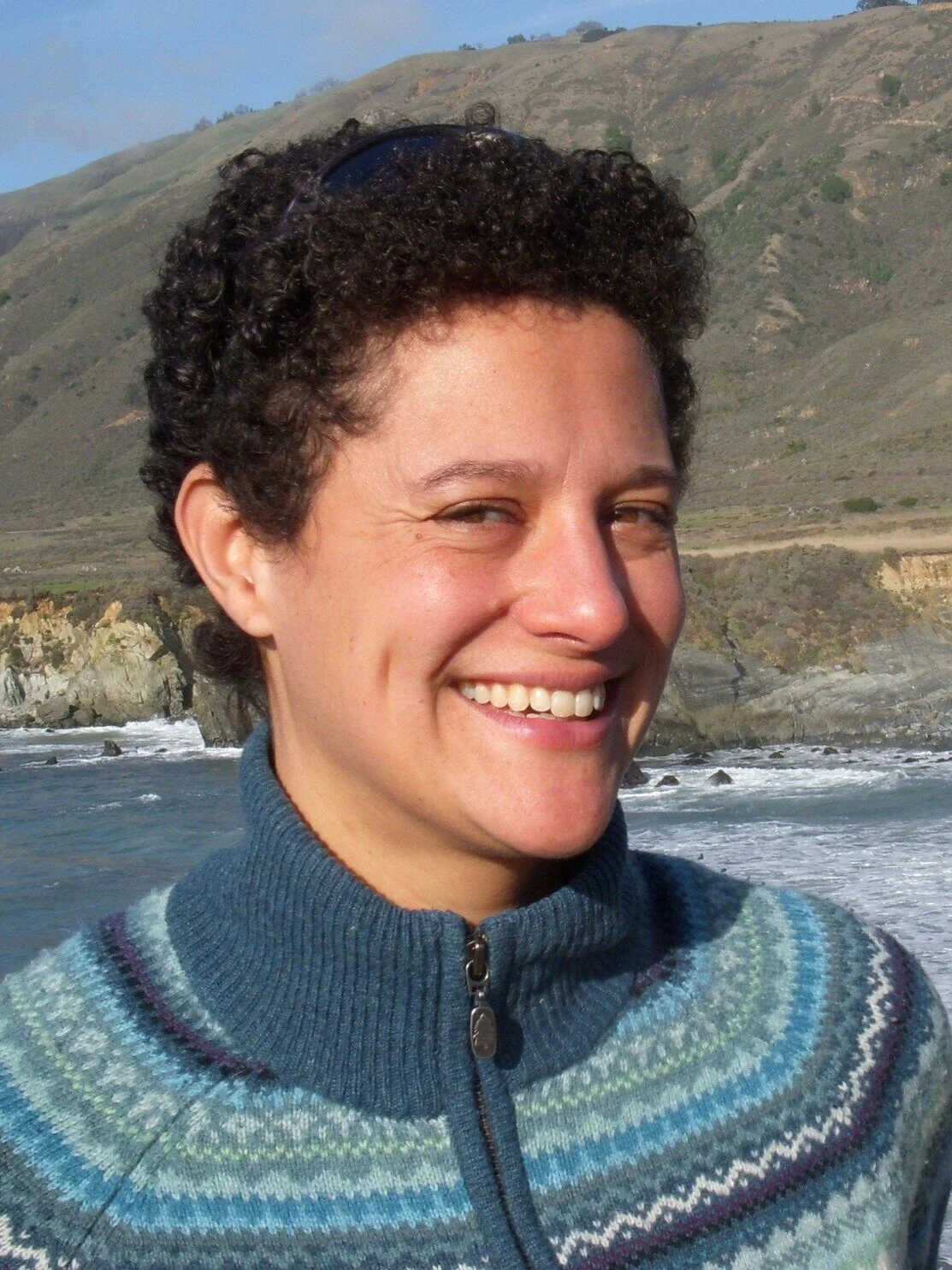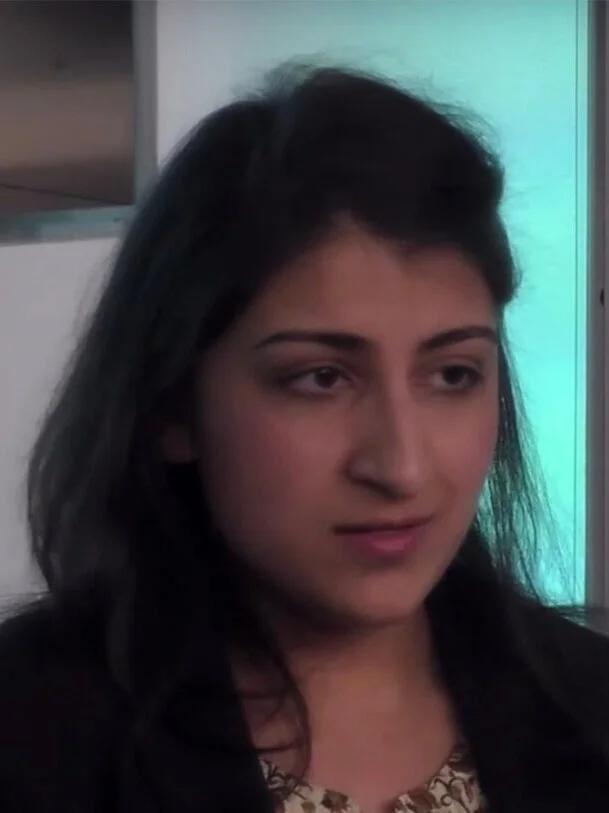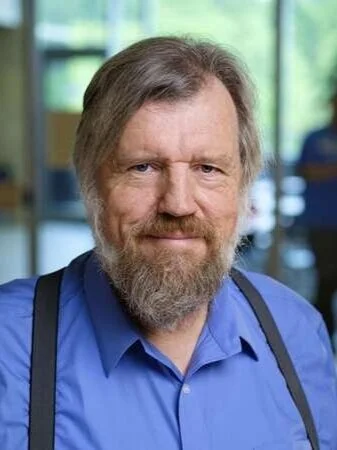About ICCS 2020
This year’s conference will be hosted digitally. More details will be posted soon.
The International Conference on Complex Systems is a unique interdisciplinary forum that unifies and bridges the traditional domains of science and a multitude of real world systems. Participants will contribute and be exposed to mind expanding concepts and methods from across the diverse field of complex systems science. The conference will be held July 27-31, 2020.
Read up on past conferences.
Registration Rates
Student: $79
Academic: $179
Government/NGO: $219
Individual/Corporate: $269

Melanie Mitchell to receive Herbert A. Simon Award
We are pleased to announce that the Herbert A. Simon Award will be presented to Melanie Mitchell for her prolific contributions to complex systems science and artificial intelligence.
Melanie Mitchell is the Davis Professor of Complexity at the Santa Fe Institute, and Professor of Computer Science (currently on leave) at Portland State University. Over her career she has made foundational contributions in the fields of evolutionary computation, cellular automata, coevolutionary learning, and cognitive modeling of analogy-making. Her current research focuses on conceptual abstraction, analogy-making, and visual recognition in artificial intelligence systems.
Prof. Mitchell is the author or editor of six books and numerous scholarly papers in the fields of artificial intelligence, cognitive science, and complex systems. Her book Complexity: A Guided Tour won the 2010 Phi Beta Kappa Science Book Award and was named by Amazon.com as one of the ten best science books of 2009. Her latest book is Artificial Intelligence: A Guide for Thinking Humans.
She originated the Santa Fe Institute's Complexity Explorer platform, which offers online courses and other educational resources related to the field of complex systems. Her online course “Introduction to Complexity” has been taken by over 25,000 students, and is one of Course Central’s “top fifty online courses of all time.”
Speakers in Plenary and Special Sessions
Additional speakers will be announced on a rolling basis.
Important Dates and Deadlines
Abstract & full paper submission:
May 15, 2020
Camera-ready abstracts and full papers:
(full paper submission is optional)
May 22, 2020
Early registration:
June 5, 2020
Late breaking news abstract submission:
July 5, 2020
Conference:
July 27-31, 2020

ICCS 2020 Networking & Special Events
The following networking and special events are open to all conference registrants.
“The Lobby” at ICCS
Monday July 27th - Friday July 31st
The lobby is a dedicated zoom room that will always be open during conference hours. It’s a great place to connect with new friends and old and unwind during conference breaks. So grab a snack and find yourself a virtual seat in The Lobby. Zoom links will be emailed to all participants for this and all ICCS Sessions on Friday 7/24!
ICCS 2020 Slack Channel
Another option for networking for all of you “Slackers” out there! This is also where you will find our Attendee Services Desk and our Tech Help Desk, the best place to go if you have a question for the team. Great news! We will be keeping the slack channel open post-conference as a place to keep those valuable connections and gear up for the next ICCS! The link to join will be made available to all conference registrants.
ICCS 2020 Un-Conference
Turning the conference on its head! Stepping out of the conventional conference model, these Un-conference sessions will create space for self-organized, peer-to-peer learning, collaboration and creativity! All conference participants can propose "hosting" a session on a topic they’re interested. These sessions will take place in “The Lobby” in assigned Zoom break-out rooms, creating plenty of opportunities to continue the conversation throughout the week! Register for the conference to propose a session by Saturday July 24th.
Un-conference schedule (EDT Time Zone):
Monday 7/27
7:50-8:30
12:00-12:40
16:15-17:15pm (With opening remarks from Yaneer Bar-Yam)
Tuesday 7/28
7:50-8:30
12:00-12:40
Wednesday 7/29
7:50-8:30
12:30-13:10
ICCS 2020 Speed Networking Event
Tuesday July 29th 17:00-18:00 EDT
Participants will be randomly assigned to various “virtual tables” (Zoom breakout rooms). Participants can learn about one another with the help of ice-breaker questions. But keep it brief, because before you know it you’ll be moving on to the next table! Participants must pre-register by Tuesday 7/28 at 12:00.
CGT - Complexity’s Got Talent
Thursday July 30th 17:40-19:00 EDT
Announcing the first ever ICCS Talent Show, Complexity’s Got Talent! Bring your unique talents to the CGT virtual stage, and perform them live on zoom. Calling all magicians, musicians, poets, singers, dancers, ventriloquists, contortionists, celebrity impersonators, comedians, pet trainers, dead-lifters, shape-shifters…and more! Whatever your performing talent, CGT wants you!
Those interested in performing at CGT should submit their interest no later than Wednesday July 29th at 12:00 EDT. Space is limited, so don’t delay!
Performances should be limited to 3 minutes each to allow for as many contestants as possible. The contest will be hosted by a celebrity panel of judges (to be announced soon), and the audience will vote on their favorite acts. A winner will be announced during closing remarks on Friday July 31st. Our CGT contest winner will receive the highly coveted Complexity’s Got Talent Award mailed to your home (the ICCS version of an Emmy!).
Executive Committee
ICCS Topics: Unifying Themes in Complex Systems
Sessions will be structured around both themes and systems.
The themes are:
Emergence
The relationship between components and collective properties and behaviors; the relationship of internal structure to external influence; multiscale structure and dynamics; self-similarity and fractals.
Complexity & Information
Defining and measuring complexity; characterizing the information necessary to describe complex systems; structuring, storing, accessing, distributing, visualizing and analyzing information describing complex systems; the dynamics of information and its computational characterization.
Dynamics & Self-Organization
Time series analysis and prediction; nonlinear dynamics and chaos; temporal correlations; the time scale of dynamic processes; spatio-temporal patterns; dynamic scaling; pattern formation; evolution, development and adaptation; interaction between internal dynamics and external inputs; programmability of self-organization.
Structures & Networks
Complex network topologies; multilayer and multiplex networks; dynamical networks; adaptive networks; temporal networks; network modeling and analysis; small-world and scale-free networks; connectivity and centrality; motifs, cliques and communities, modularity, degeneracy, redundancy, and substructure; network visualization.
Methodology
Computer simulation; agent-based modeling; data-driven research; empirical approaches; machine learning; artificial intelligence; analytical methods; nonlinear statistics; soft computing; design/systemic design; games and gamification; qualitative methods; mixed methods; sensemaking; methods and tools for complex systems education.
And the system categories are:
Mathematical, Physical & Chemical Systems
Non-equilibrium processes; hydrodynamics; glasses; nonlinear chemical dynamics; complex fluids; molecular self-organization; information and computation in quantum and classical physical systems; supramolecular chemistry; spatio-temporal patterns in physical systems from subatomic to astrophysical.
Bio-Molecular & Cellular Systems
Systems biology; protein and DNA folding; bio-molecular informatics; membranes; cellular response and communication; genetic regulation; gene cytoplasm interactions; development; cellular differentiation; primitive multicellular organisms; the immune system; origins of life; biological networks in human health: protein-protein interaction, metabolic and gene regulatory networks; Systems pharmacology.
Physiological & Psychological Systems
Nervous system; sensorimotor systems; computational models of neural and cognitive function; perception, cognition, memory and action; psychological dysfunction; pattern recognition; learning and development; human machine interaction; autonomous mental development; neurocognitive networks; embodied knowledge; tacit knowledge.
Organisms & Populations
Population biology; collective behavior of animals; ecosystems; ecology; ecological networks; microbiome; speciation; evolution.
Human Social & Economic Systems
Social networks; socio-technical systems; computational social science; collective intelligence; corporate and social structures and dynamics; organizational behavior and management; urban development; city science; economies and markets; financial systems; risk management; globalization; military and defense systems; whole of government approaches to complex problems; global conflicts; social unrest; political networks; interactions between human and natural systems; evolution of norms and social change; diffusion/flow of knowledge; diffusion of practice; diffusion of innovation; regulatory policy; anti-trust/monopoly policy; organizational learning; organizational health/robustness/anti-fragility; societal health/robustness/anti-fragility; the Commons.
Engineered Systems and Systems of Systems
Design and manufacturing; nano-technology; bioengineering; modified and hybrid biological organisms; computer based interactive systems; multi-agent systems; artificial life; artificial intelligence; robots; communication networks; the Internet; traffic systems; distributed control; resilience; engineered resilient systems; critical infrastructure systems; graceful extensibility; robustness vs fragility tradeoffs; emergence and surprise in engineered systems of systems; test and evaluation of autonomous, learning systems; self organizing artifacts; complex systems engineering; biologically inspired engineering; synthetic biology; sensor networks.







































